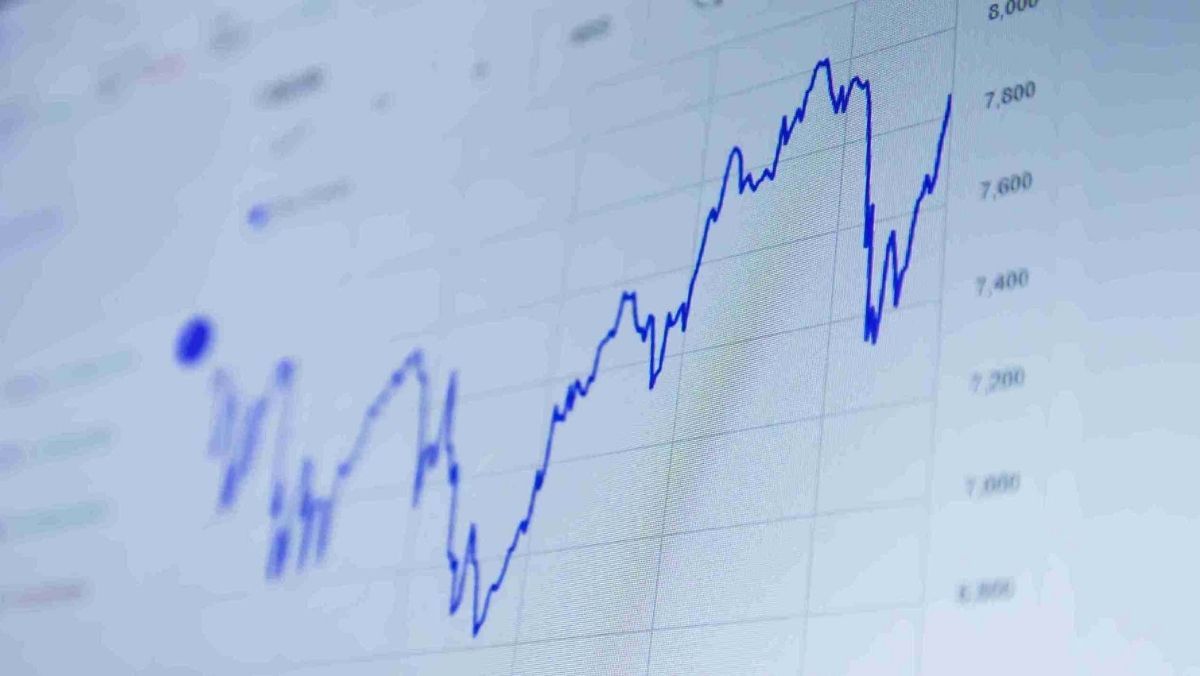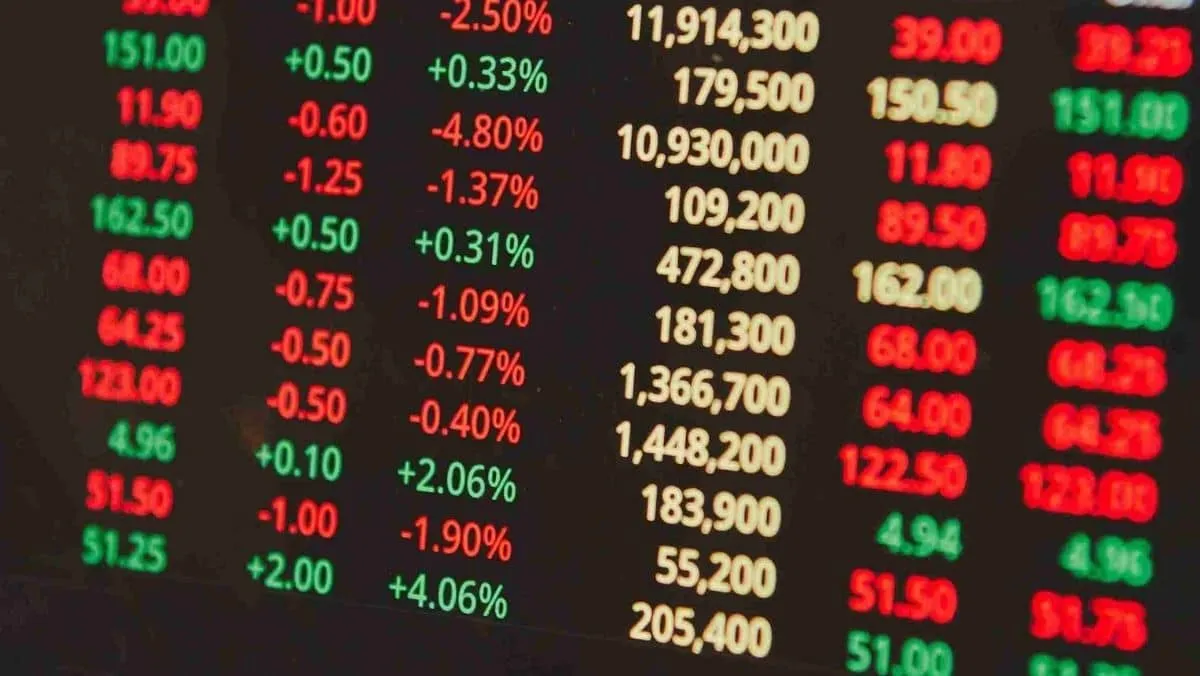Friday Dec 22 2023 02:44

10 min

Banco Santander is one of the largest banks in Europe, with its headquarters in Spain. With over 150 million customers worldwide and almost 200,000 employees, Santander has established itself as a leading financial institution not just in Europe but globally.
This article will take a closer look at the Santander share price outlook. We will explore Santander's highest share price, analyze the recent share price performance over the past year, and discuss the events and factors that have impacted their share price.
Santander's shares have experienced significant volatility over the past decades alongside macroeconomic fluctuations impacting the global banking industry. According to Macrotrends - a research platform for long-term investors, The Santander share price reached its highest closing price on record in 2008, on the cusp of the global financial crisis. It closed at €8.38 on May 15th, 2008. This represents the record peak daily closing price that Santander shares have attained.
At the time, optimism pervaded global capital markets before the 2008 crisis, fueling a strong multi-year rally in bank stocks. This euphoric investor sentiment pushed Santander's valuation to unprecedented levels.
However, almost immediately following this history-making closing high, the Santander share price collapsed along with global banking stocks during the 2008 financial crisis selloff. As panic roiled financial markets, shares lost over 65% of their value within months. Nevertheless, Santander's all-time high closing price of €8.38 remains the top barometer to analyze the bank's recovery over the past decade and upside potential for the future as macro conditions improve.
Learn how to trade stocks with this article: How to trade CFDs

Over the past year, the Santander share price reflects the turbulence experienced in global financial markets amidst rising inflation and interest rates and growing concerns over an economic slowdown. After starting 2022 strong, gaining over 10% in the first few months to reach highs of €3.42 in April, growing macroeconomic headwinds have since pressured the share price lower. The Santander share price currently sits around €3.95 as of December 2023.
Several events over 2022 have impacted Santander's operating performance and, in turn, share price movements:
Heading into 2023, the key factors likely to influence Santander's share price performance include interest rate policy from central banks like the European Central Bank, the economic slowdown's impact on lending volumes and credit quality, ongoing inflationary pressures on costs, and financial market volatility. However, Santander boasts both the scale and diversification to navigate the turbulence.
Santander has significant operations across Europe and North and South America. This broad international footprint helps smooth volatility, shielding profits during isolated downturns in any single market. Moreover, having over 150 million loyal customers gives Santander an immense recurring revenue base.
Santander has maintained a consistent dividend payout, even during economic uncertainty. The board of directors approved an interim cash dividend of €8.10 per share from November 2nd, 2023. This represents a 39% increase compared to the equivalent cash dividend payment in 2022.
Moreover, Santander's dividend appears secure, given a payout ratio below 40% of earnings. Investors can likely expect gradual dividend growth in line with profit expansion, assuming the economic backdrop stabilizes. Geographic diversification should aid earnings growth to support higher dividends.
Consider giving this a look: How Do Shares CFDs Work?

Despite solid financial performance overall, Santander has faced recent regulatory scrutiny over past policies viewed as misleading for customers.
While Santander has adequate reserves to absorb settlements, recurring lawsuits and billion-dollar compliance costs pose reputational risks. Negative perceptions around business practices can undermine investor confidence. However, Santander has made progress in enhancing transparency and products to treat customers fairly.
As a systemically important European financial institution, Santander's performance depends heavily on European economic conditions. Recessions hurting client activity levels, asset values, defaults, interest rates, and currencies influence earnings.
For example, the economic fallout from the Russia-Ukraine war lowered expectations for EU growth in 2022 below 1%, hampering lending demand. Meanwhile, surging inflation above 10% could force quicker ECB rate hikes, benefiting margins and raising recessionary fears. Given the sensitivity to Santander's commercial banking operations, investors must monitor Europe's uncertain economic outlook.
Santander maintains a diverse balance sheet across corporate loans, mortgages, consumer credit, and capital markets. Asset quality remains relatively strong in its non-performing loan ratio. However, any material rise in customer defaults from recessionary pressures could lead to higher loan loss provisions, impacting capital ratios and earnings.
While loan losses normalized closer to historical levels in 2022 after light pandemic-era losses, worsening credit conditions from inflation or economic weakness may pressure upcoming results. Santander's global risk management capabilities will be tested. Investors should watch lending portfolios closely amidst the tricky operating backdrop.
You might also like to read: 10 essential tips to trade stocks
The Santander share price has faced volatility amidst a challenging macroeconomic environment, but the company retains solid fundamentals. With operations across Europe and the Americas, Santander boasts the scale and geographic diversification to navigate uncertainty. While risks remain from economic weakness, inflation, and asset quality concerns, Santander has adequate capital and risk management capabilities.
If you are considering investing in Santander stock or CFDs, further research is advised before making investment decisions. You may want to start by monitoring the bank's lending trends, including the types of loans they are issuing and whether there has been a recent trend in loan defaults or delinquencies. It is also wise to look into the bank's regional performance, market share, and reputation in each region it operates in.
Finally, be sure to review the bank's management guidance and assess the competence of its leadership team. By staying on top of these critical factors, you can make more informed decisions about whether Santander is a good investment opportunity for you.
Learn and trade with markets.com: The ultimate trading community!
“When considering “CFDs” for trading and price predictions, remember that trading CFDs involves a significant risk and could result in capital loss. Past performance is not indicative of any future results. This information is provided for informative purposes only and should not be considered investment advice.”